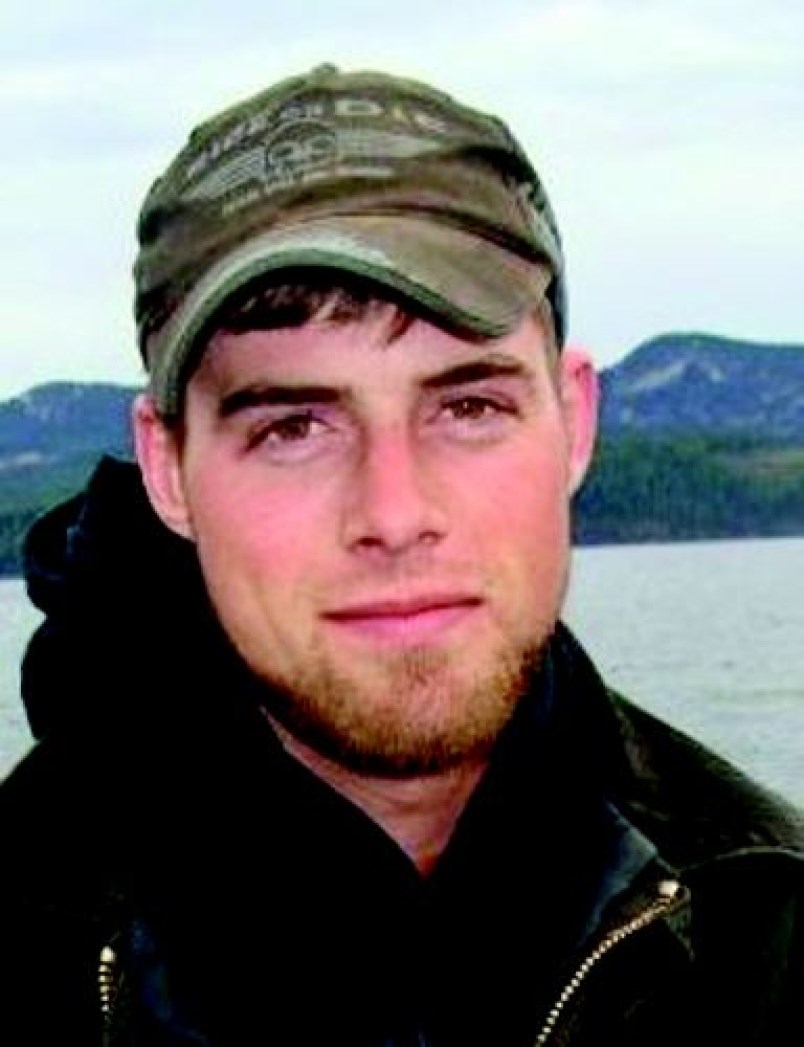A Nakazdli man will spend at least 25 years in prison after a jury found him guilty Thursday of first degree murder.
James David Junior Charlie, 27, put a hand to his brow upon hearing the verdict and a few moments later began to weep quietly, wiping tears from his eyes.
After hearing testimony over a span of five weeks, jury members deliberated for two days before reaching their verdict in relation to the January 2012 death of Fribjon Bjornson.
The Vanderhoof father of two young children had gone to a home on the reserve just south of Fort St. James to buy drugs.
What happened next remains largely a mystery but evidence presented during the trial had suggested Charlie and three others - Wesley Duncan, Jesse Bird and a third man whose name is protected by a court-ordered publication ban - launched an apparently unprovoked attack on Bjornson.
According to an agreed statement of facts, he was dragged into the home's basement where he was punched and kicked into unconsciousness and then strangled with a telephone cord, although it's possible Bjornson was already dead by that time.
Theresa Charlie, meanwhile, had emptied Bjornson's wallet and distributed about $800 in cash between the culprits.
The incident occurred in an atmosphere of chaos fueled by drugs and alcohol.
When he testified, Duncan described Bjornson's death as an "accident."
"We got in a scuffle with him and that and it just went bad," Duncan continued.
In June, Duncan and Bird were sentenced to life without eligibility for parole for 15 years after they pleaded guilty to second-degree murder.
Charlie's sister, Theresa, who had been in custody for 3 1/2 years, was sentenced to time served on a count of indignity to a dead body.
Given a chance to speak, Charlie stood up and turned to Bjornson's parents, Fred and Eileen, and apologized.
"I'm sorry," he said. "I don't know what happened."
"I don't doubt that, I don't doubt that you're sorry," Bjornson's father replied. "But I know what you did. I know you were there."
Fred Bjornson pumped a fist upon hearing the verdict and within moments Eileen was in tears, her head on his shoulder.
The outcome had been a longtime coming and the process has exacted a emotional toll, they said in an interview outside the courtroom.
"It's huge," Fred Bjornson said.
"Not only did they take my son's life, they [Charlie, Duncan and Bird] took their own lives because they're behind bars now," Eileen Bjornson added. "Let's just hope they make something of it now, you know. Not for nothing."
They described Fribjon, who was 28 at the time of his death, as kind, generous and thoughtful.
"I'd like to say he was a true northern boy. He liked to fish and hunt and he loved the outdoors and he was just ours and we love him and miss him," Eileen said as she broke into sobs.
Fribjon had addiction issues they acknowledged but added no one is perfect.
"He had a good heart and he was constantly doing things for people," Fred said.
While happy with the outcome, they said key a question remains unanswered: Why was their son attacked?
Outside the courtroom, defence lawyer Danny Markovitz spoke to the couple about the possibility of meeting with Charlie in person with the hope of getting an answer.
"If it comes to nothing, then we're no worse off than we are now, but at least we have tried," Eileen said.
Also unanswered is why Bjornson's head was cut off in the process of disposing of his body in the days that followed.
Charlie initially denied carrying out the act but in an agreed statement of facts acknowledged he was the one who did it and pleaded guilty to indignity to a dead body.
In a statement to police aired during the trial, Charlie never said why it happened, only that it did.
On that matter, B.C. Supreme Court Justice Ron Tindale went through the formality of sentencing Charlie to three years, to be served concurrently to his life sentence.
First-degree murder automatically carries a term of life without eligibility for parole for 25 years. Even then, he must convince a panel he deserves to be let out and if he is, will remain under the eye of a parole officer for the rest of his life.


